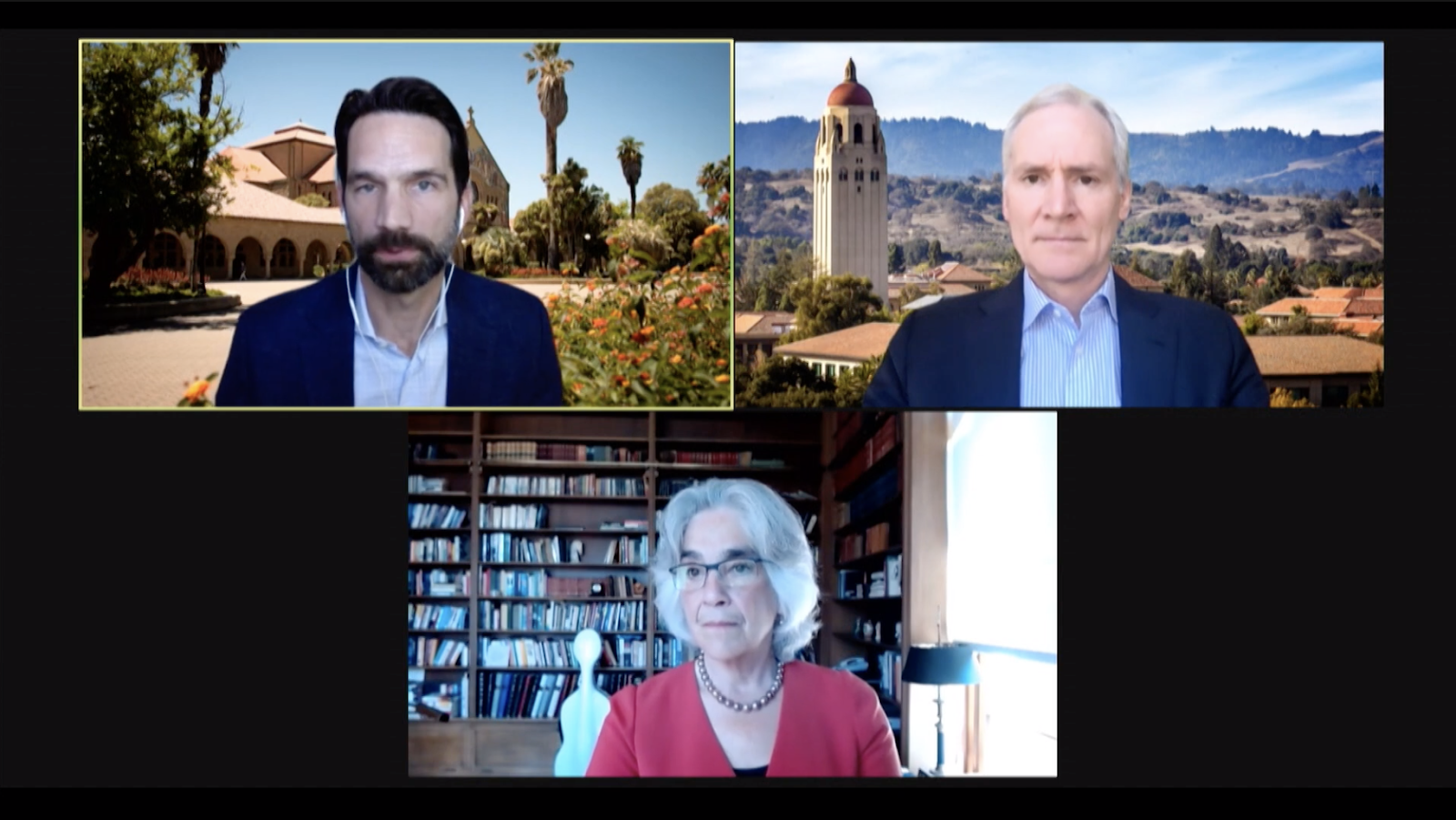As Stanford attempts to crack down on gatherings, frosh say parties often go unreported because students are reluctant to turn each other in for violations of University policies.
Last Saturday, The Fountain Hopper (FoHo) reported on one of the most egregious yet: Around 100 people without masks attended a party at the 680 courtyard near Florence Moore Hall, and the Stanford University Department of Public Service (SUDPS) was called in to break up the gathering, according to the campus newsletter.
Kiara Bacasen ’21, a resident assistant (RA) in Lantana, confirmed that many RAs found students returning to their dorms very late on the night of the party.
“I’m not surprised at all,” said Francesca Malayeri ’24, who is living on campus.
Reports of this event come after a series of on-campus gatherings were reported involving undergraduate students and graduate students during both fall and winter quarter.
In Malayeri’s view, frosh have been the most “COVID-reckless” people on campus. She has seen social media posts of some attending house parties in San Francisco and Menlo Park on the weekends, she said.
While Student Affairs spokesperson Pat Harris declined to confirm whether or not the gathering at 680 was under review, University administrators sent an email on Thursday to students living on campus, warning against on-campus parties.
The email reiterated that high-level violations of the Campus Compact — such as hosting or attending indoor parties or outdoor gatherings not in accordance with public health measures — may result in removal from campus.
“Attending a party blatantly disregards the health and safety of yourself and everyone around you,” wrote Vice Provost for Student Affairs Susie Brubaker-Cole and Senior Associate Vice Provost Mona Hicks. “It is unacceptable.”
Brubaker-Cole and Hicks also wrote that University staff may ask the Stanford University Department of Public Service (SUDPS) for “support” when gatherings are too large for one or two staff members to intervene.
While the Dean of Students’ office is responsible for handling Campus Compact violations, the University administration relies on community members to report their classmates’ infractions. According to Bacasen, this is something that undergraduates and RAs are reluctant to do: Whether or not someone loses housing security over Campus Compact violations is not a burden that should fall on RAs, she said.
“We have been told over and over again that our job is education, not enforcement,” she said.
Students do not usually face disciplinary action for breaking the rules unless an RA catches them in the act, according to Jacob Dunlop ’24.
“Word of mouth never really gets enforced,” he said.
Dunlop added that students may keep quiet about gatherings due to a shared understanding of the emotional toll of social isolation. Because students are widely struggling with mental health related issues while living on campus, “there is an air of understanding, or nonjudgment,” around social gatherings, he told The Daily.
Some students, however, said they were content with the rules surrounding social life on campus.
“It’s really not something to complain about,” said Nejat Demal ’24.
Malayeri agreed, saying that she prefers to socialize in smaller groups with her friends. Currently, students are currently allowed to socialize without masks in a stable household of up to eight people. As for people who prefer to socialize in big groups, Malayeri said they “aren’t necessarily taking it well.”
According to Dunlop, students have begun to gather more secretively, despite the University’s clear prohibition of parties during the pandemic.
“A lot [of gatherings] were stung last quarter,” he said. “A lot of people have learned to host them outdoors.”
This secrecy has had repercussions for both public health and student wellbeing. One student, who requested anonymity out of fear of retaliation, said that another student took advantage of her at an indoor gathering when she was too inebriated to be aware of her surroundings or who she was with.
After criticism of its reporting policy, the University has offered Campus Compact amnesty to all survivors and witnesses of sexual violence. Still, the student’s story illustrates “the dangers of what could happen to people that are too afraid of getting in trouble to report anything,” she said.
Despite the University’s consistent stance against social gatherings, students on campus have varying opinions on being responsible for reporting their peers, she added.
“There’s definitely a divide between people who are worried about their health and the health of others and the people who are just kind of here to have fun,” she said.
Contact Marli Bosler at mbosler ‘at’ stanford.edu.
